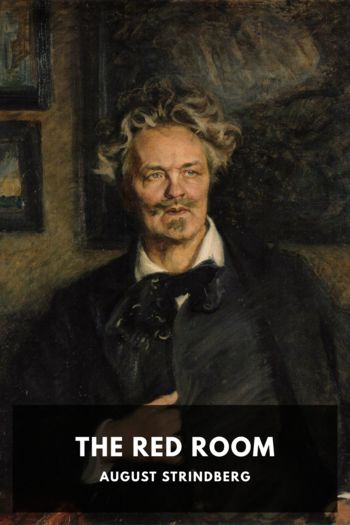Ingenious pain Andrew Miller (smart ebook reader .TXT) 📖

- Author: Andrew Miller
Book online «Ingenious pain Andrew Miller (smart ebook reader .TXT) 📖». Author Andrew Miller
Arbott of the Exeter Arbotts — you may know of the family — But as a man gets older he likes to look back upon those times in his life when he was among the doing part of the world and did not take his knowledge of it entire out of a newspaper.
To come to the point, I sailed with Captain Reynolds - of whose character I shall say more anon -first to Gibraltar and thence to Port Mahon, and from there to Saint Lucia in the West Indies where I suffered with the black vomit, and but for Mr Munro's ministrations would I believe have ended my days off that unwholesome coast, as indeed did some score of the ship's company.
We returned to Portsmouth in the summer of'54 where I left the ship to try my fortune upon terra firma, but finding myself no better off than before, I engaged again with Captain Reynolds and was but newly reinstated when I first set eyes upon James Dyer, which is to say I must have clapped eyes upon him then, for that is when the new people came aboard. I cannot, however, remember noticing him then, or indeed any of them in particular, apart from a fellow called Dabb who ran mad and leapt over the taffrail and was seen no more. As you know, Sir, it is the sad and iniquitous business of the Navy to provide for itself largely out of pressed men and you never did see such naked misery as upon the faces of those wretches when first they are brought aboard and surrounded by a world as strange to them as might be the moon. If, Reverend, you have not had the honour to walk the deck of one of His Majesty's ships I fear it is very hard for you to comprehend the world your friend had come to. The seamen themselves - in their looks, their language and their character - are quite unlike their earthbound cousins. One's ears are constantly assailed by talk of futtock shrouds and gantlines, halliards, topgallants, spars, capstans and I know not what. And, Sir, it is such a very nice world, so very particular and jealous of its customs - who may
walk the Quarter Deck and who may not — who is accounted a gentleman and who is not — that nothing is more easy than unwittingly to give offence.
I of course was an 'idler, like the schoolmaster — there were always several young children aboard — and such as the purser, the carpenter, the surgeon and his mates; that is, all those who did not stand watch. There were a number of advantages in this, not the least of which was that we might enjoy, under most circumstances, an uninterrupted night of sleep, while no seaman ever slept for more than four hours at a stretch, and even this meagre portion was at the mercy of the weather. Such would have been the fate of your friend- crammed into fetid quarters between decks, hammock slung side by side with his greasy shipmates, everything too hot or too cold, everything regulated by whistles and oaths and the rope's end -for the Boatswain and his mates rarely gave an order but it was accompanied by a lash - and this on a ship accounted very moderate in the severity of its discipline.
Now, Sir, I fear you will be growing impatient to know when I did first notice James Dyer. I have been asking myself the same question while here at my desk, and have but two minutes since been rewarded with a true memory, quite as if it had been preserved in amber.
We were in the Bay of Biscay and I was taking my regular morning turn with Mr Shatt the schoolmaster when he pointed Dyer out and said that Mr Drake - a very amiable officer, somewhat aged for a midshipman - had remarked on the boy's coolness and how he had seen him walking upright along the yards as if he had been at it twenty years. When I looked I saw a young person aged about fourteen or fifteen, dressed in canvas frock and baggy breeches, well formed, handsome, though with a rather grave expression, indeed, if I may say without offending your memory of him, a somewhat supercilious expression, and this, I doubt not, helped give rise to the rumour that he was
well-born. Other evidences seemed to bear this out. For example, he had with him when he came aboard a bag of clothes containing some fine coats and waistcoats etc. and also a boxed orrery, which Mr Munro prevailed upon the boy to show to him. Besides these proofs — suggestive rather than conclusive — there was a persistent whisper that one of the pressed men, an older fellow, name of Gunner, who had come aboard at the same time, was, or had been, Dyers manservant. How such stories start I cannot say. I used to think they were like Herodotus's bees, self-propagating, and of course, once they exist, they very shortly swarm over the whole ship. Gunner, as far as I know, denied any such connection.
At first I imagined how these intimations of gentility would do James Dyer no service at all among the common seamen, and yet, whether out of a natural deference to one born better than themselves, or whether on account of his great coolness, he became quite a favourite with them — which is to say they respected him, though I do not think any loved him.
Now, Sir, Mr Dnl Tusker, my Rhetoric master at Grammar school, begged me never make a general statement without then furnishing some particular instance





Comments (0)